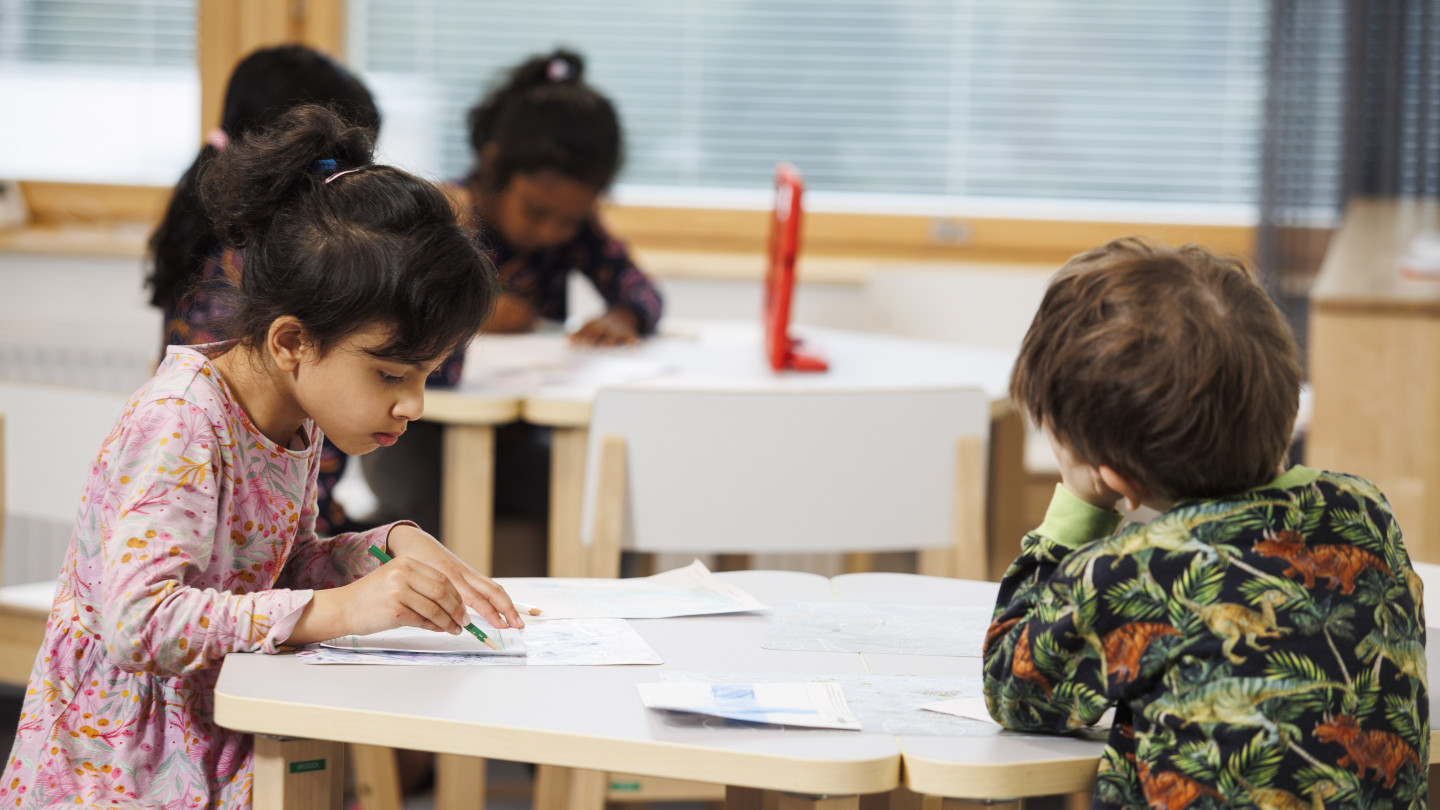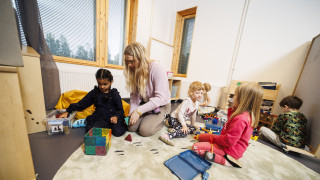Teachers and Language Minority Parents form different perceptions of children's Finnish language skills in early childhood education and care

A recent study from the University of Jyväskylä examined how the learning of Finnish by children from language minority families is perceived in early childhood education and care (ECEC) and what kinds of meanings are attached to children's language skills.
The results show four different ways in which teachers and language minority parents talked about the children's language development when drawing up the child’s early childhood education plans.
Finnish develops naturally. Many early childhood education teachers spoke of learning Finnish as a natural process that progresses as part of everyday life without the need for separate language teaching.
Home language first. Some discussions emphasized strengthening the child's own mother tongue. The mother tongue was seen as the foundation of identity, so developing Finnish was less important.
Behavioral challenges are justified by language skills. Sometimes a child's inadequate language skills were used as an excuse for undesirable behavior, linking language difficulties to misconduct.
Language skills as a gateway to participation. Proficiency in Finnish was considered a requirement for social and educational inclusion.
Different perceptions of language create tensions
Although discussions about children's language learning are often based on good intentions, differences in the views and language learning ideologies between ECEC and parents can create tension.
"According to our research findings, discursive tensions and different perceptions related to the second language can weaken understanding between teachers and language minority parents, possibly hindering their collaboration," says doctoral researcher Yehya Alhajji from the University of Jyväskylä.
"Making these tensions visible could enhance the understanding of potential barriers to family involvement and support collaboration between home and ECEC settings”, Alhajji continues.
Towards more inclusive early childhood education
According to researchers, awareness of different ways of talking about language is the first step towards a more inclusive ECEC. When educators recognize their own perceptions of language, they are better able to support the development of both the child's Finnish and their native language. Awareness also supports collaboration between the home and ECEC.
"In addition, so-called pedagogical translanguaging practices, which value both the child's home language and Finnish, are important in supporting multilingual development and social participation," Alhajji notes.
Translanguaging refers to practices in which children are allowed to use all of their language resources—for example, telling a story in their own mother tongue and supplementing it with Finnish. In this way, language learning is not just about adapting to the majority language, but about interaction in which both languages have a place in everyday life.
ECEC is often the first place where children from language minorities encounter Finnish society. The way their language is valued in ECEC can affect their entire perception of themselves.
“Closer collaboration between early childhood education professionals and language minority families is essential to advancing socially inclusive and translanguaging pedagogies. This will strengthen the participation of children from language minorities and ensure that every child can feel like a part of the community," Alhajji concludes.
Publication details:
Alhajji, Y. M., Vehkakoski, T., & Sevón, E. (2025). Representations of Children’s Finnish Language Skills in Early Childhood Education and Care Plan Meetings Between Teachers and Language Minority Parents. Early Childhood Education Journal, Early online. https://doi.org/10.1007/s10643-025-02026-2







